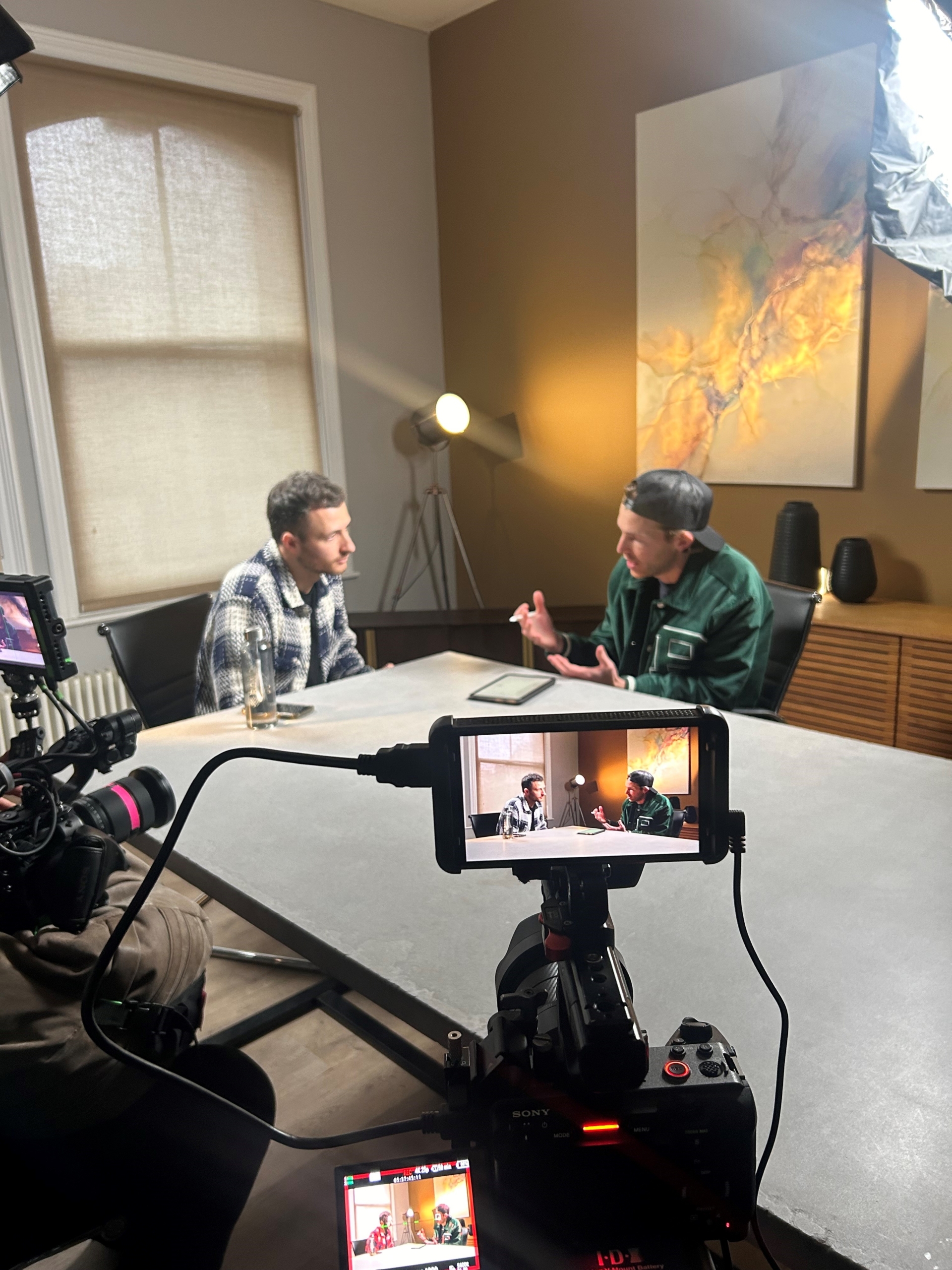AI tools used by candidates and what to do about it
- Share on LinkedIn
- Share on Twitter
- Copy link Copied to clipboard
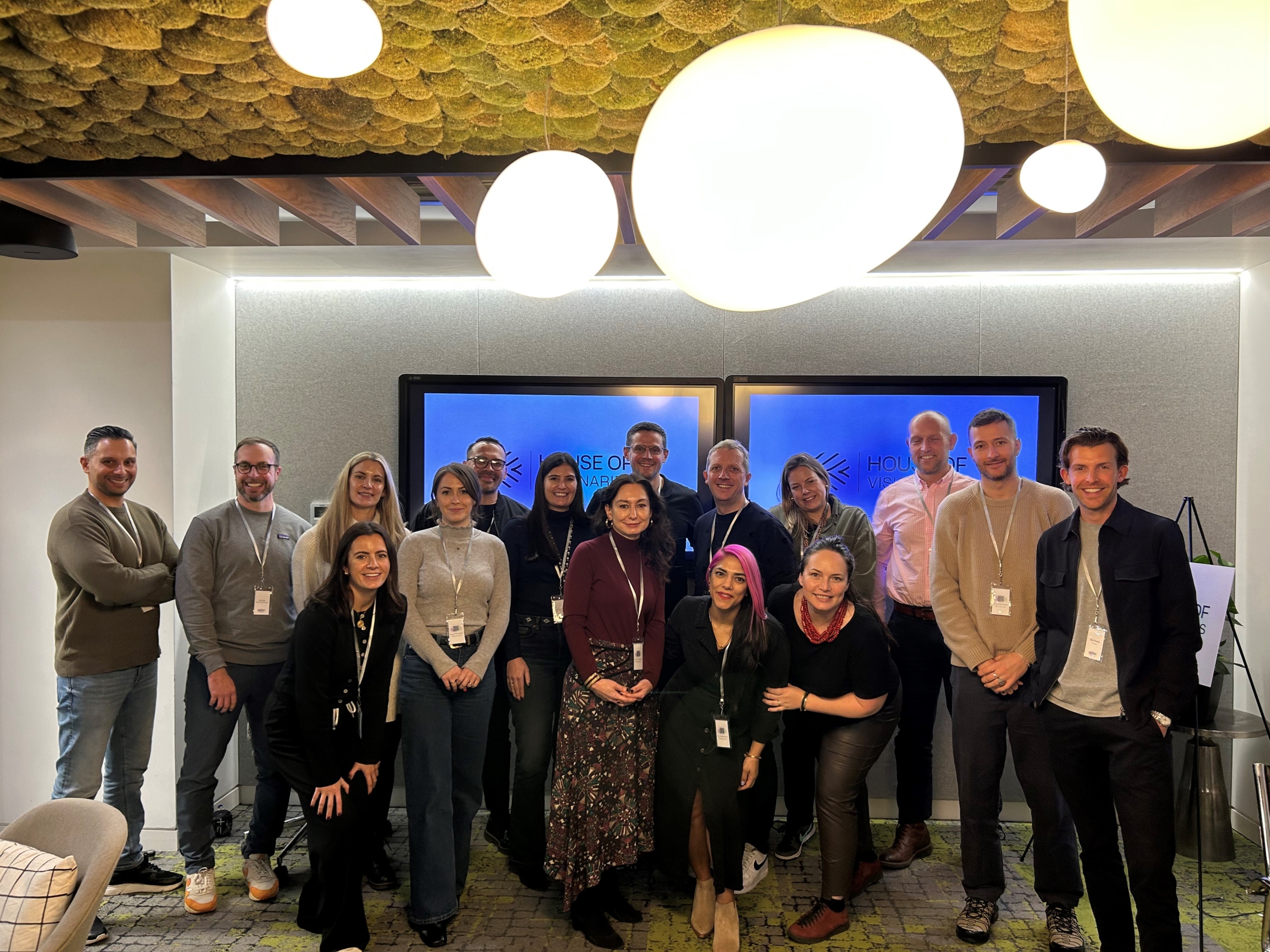
AI tools used by candidates and what to do about it

AI in recruitment
The most talked about topic amongst senior TA/HR leaders and there is always some anxiety around the unknown. However, we have to lean into this topic, embrace a situation that isn’t going to change and adapt our approach accordingly.
With an increasingly AI augmented workforce there will be scenarios where we welcome the use of tooling throughout the hiring process and those where we don’t.
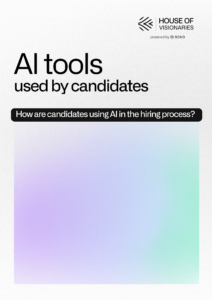
These tools have the power to level the playing field for neurodivergent candidates, but also raise ethical, moral and legal considerations.
We use AI tools in our day jobs so should expect others to.
AI tools used by candidates
The game is changing fast and adoption of AI tools is growing in the UK.
- 53% of candidates are using AI to help them in their search
- Of those who are using AI, 77% say they have leveraged it to exaggerate or lie about their skills
- 27% have used AI to complete a test assignment or skills assessment
It’s on us to decide where we adapt our interview processes, to level up our teams, and hiring managers to make great hiring decisions for the business.
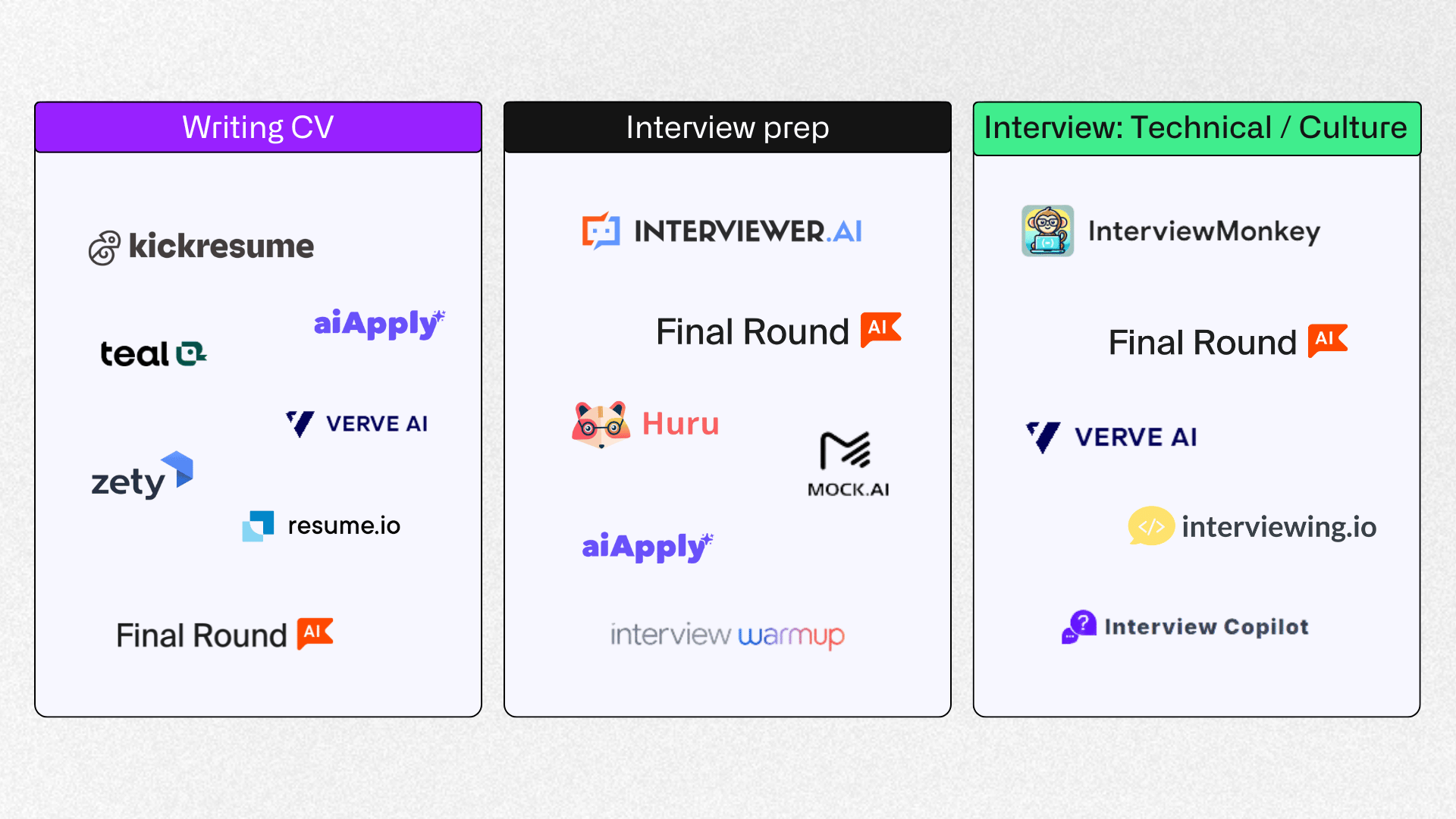
Writing CVs
Is fabricating experience anything new?
Has the CV always been flawed?
On the one hand AI tools help candidates present their most relevant information succinctly. This is great for recruiters screening them right? If that’s easier to do though, spotting the stand out talent becomes harder?
On the other hand, AI can be used for clever fabrication, making screening processes even more important, and maybe more human…
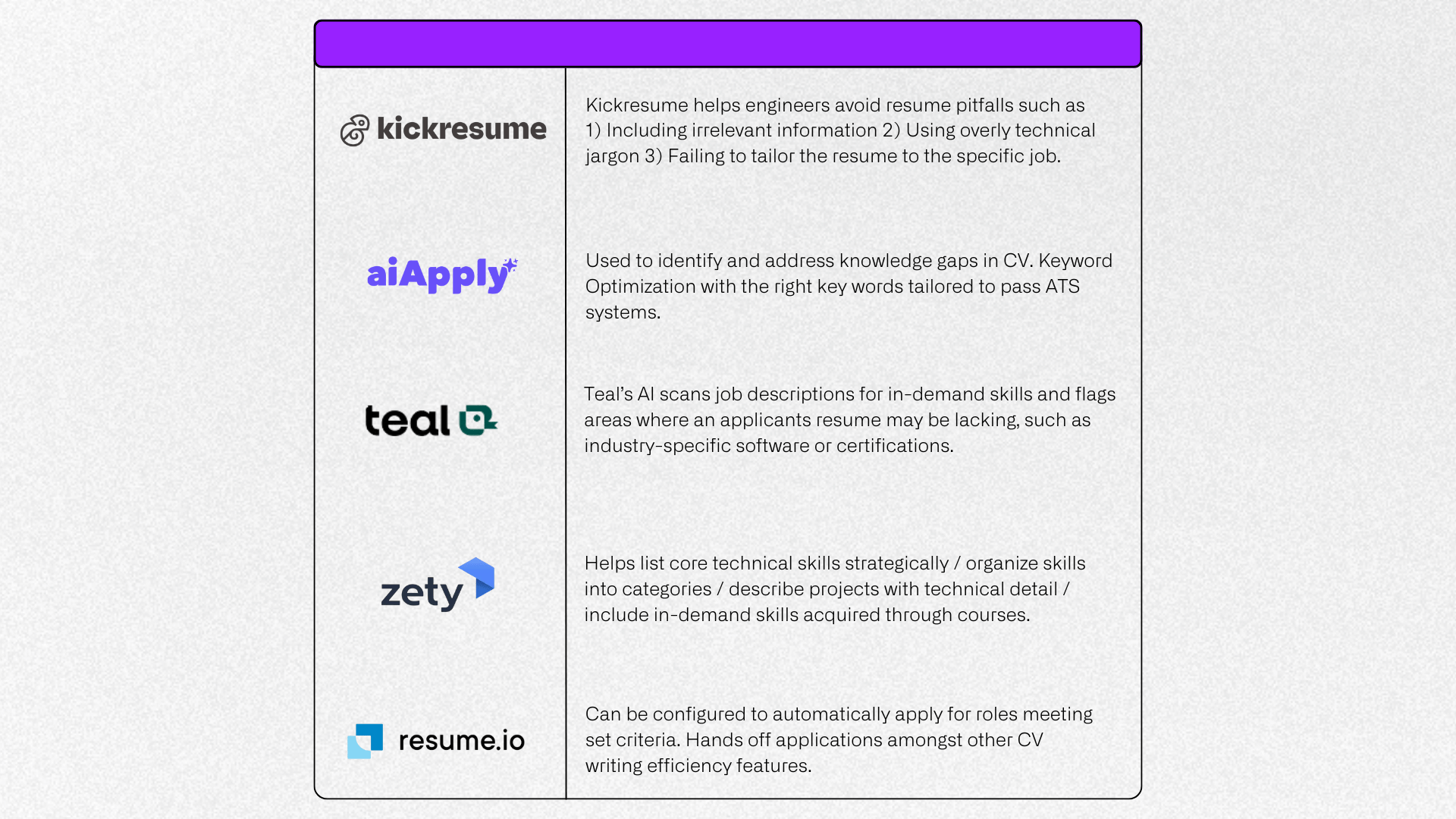
Interview Prep
Every interview top tips guide will point to preparation being key. However, candidate preparation is becoming more sophisticated now through these tools.
They can highlight everything from unconscious visual cues, tone and cadence tips alongside rigorously training a candidate for competency style assessments.
If everyone’s doing this, interviews will be better and more enjoyable for both parties. We’ve all been in an interview we wish could just end…
If the lower end bar is lifted though, it could place more emphasis on our scoring matrices and gut feel for making decisions?

Interview: Technical / Culture
Real time, in interview, response support creates a blurring of the lines between what a candidate knows and what they are able to present as knowledge.
Will deeper questioning and more left field questioning be necessary to spot who really knows their stuff?
Will the average hiring managers knowledge of technical disciplines, situational leadership experience etc need to rise to counteract this?
Does the opposite impression get left by candidates using these tools? If everyone replies with very similar and “ideal” responses that lack personality and charisma, do you fail to stand out?
We should remain open minded about where we do want candidates to evidence and ability to use gen AI to augment how they work as well.
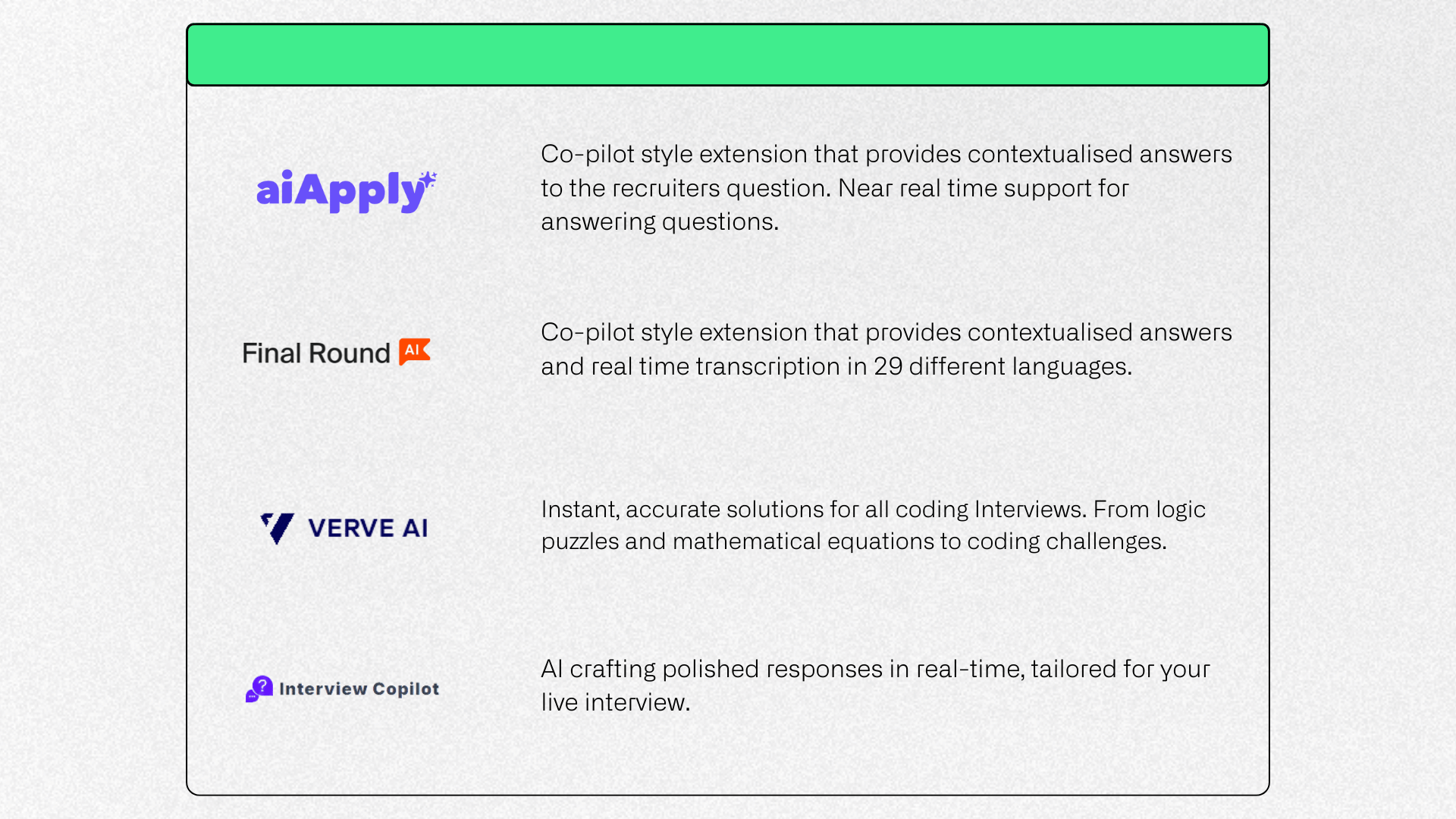
Best practice
1) Don’t fight it, embrace it
Research the tools out there, understand them and empathise with candidates who are using them for the right reasons.
2) Be transparent
Tell candidates in the job advert where the use of AI is encouraged and where it’s not fair game. Grade roles for AI use and work with hiring managers to get this right.
3) Strengthen scoring matrices
Better prepared candidates raises the bar and the narrowing of the candidates relative performance points to beefing up our scoring matrices.
4) Probe deeper and manipulate the boundaries
Asking deeper questions around experience will be key. Getting candidates to think more on the spot will reveal their genuine experience and cognitive ability.
5) Consider the legal implications
The “Employment Rights Bill 2024-25” points to employees being protected from day 1 against unfair dismissal. Making getting decisions right even more important.
6) Upskilll the team and hiring managers
Risk needs to be shared with hiring managers over getting decisions right and business partnering with them on the process key. Your team must be clued up too.
7) Don’t forget candidate experience
Decide what adjustments are appropriate to support a diverse set of candidates and remind yourself that in future a hot market for candidates will return.
8) Build agility into your interview processes
This is just the first generation of tools. They will get more sophisticated and the changing nature of our workforce means a constant evolving process is required.
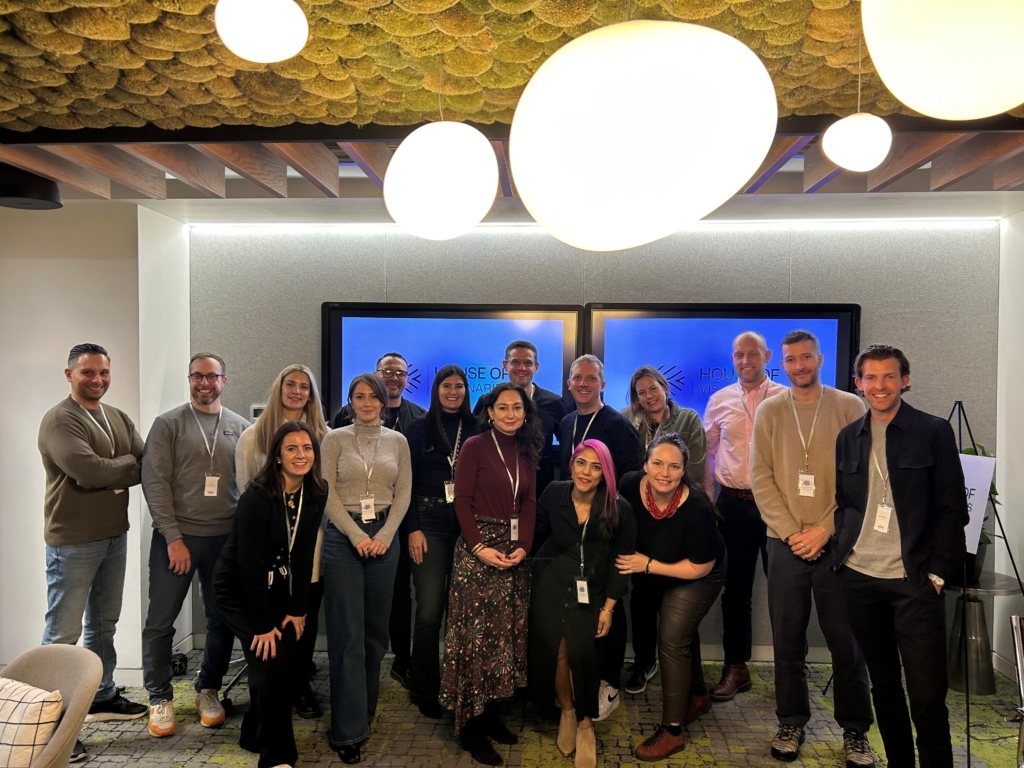
Interview adjustments
The rise of robotic answers, very similar scores on technical assessments and that feeling in the pit of your stomach…have I really selected the best person for the job?
We need to take a step back, think, and ensure we adjust interviews to hire the best candidates for the business.
A no AI / everyone interviewed face to face approach would be blunt, misguided and expensive. That ignores situations where we will be looking for people who can evidence augmenting themselves with AI tools.
For example in a customer service rep role, we want to keep costs very low whilst ensuring customers queries are answered. In this context, using AI heavily in an interview might be actively encouraged given the nature of the downstream day to day role.
We also need to think about the implications of the adjustments we make. Are we heading back towards a much more human approach, with more human effort and stages and more cost?
Technical Roles
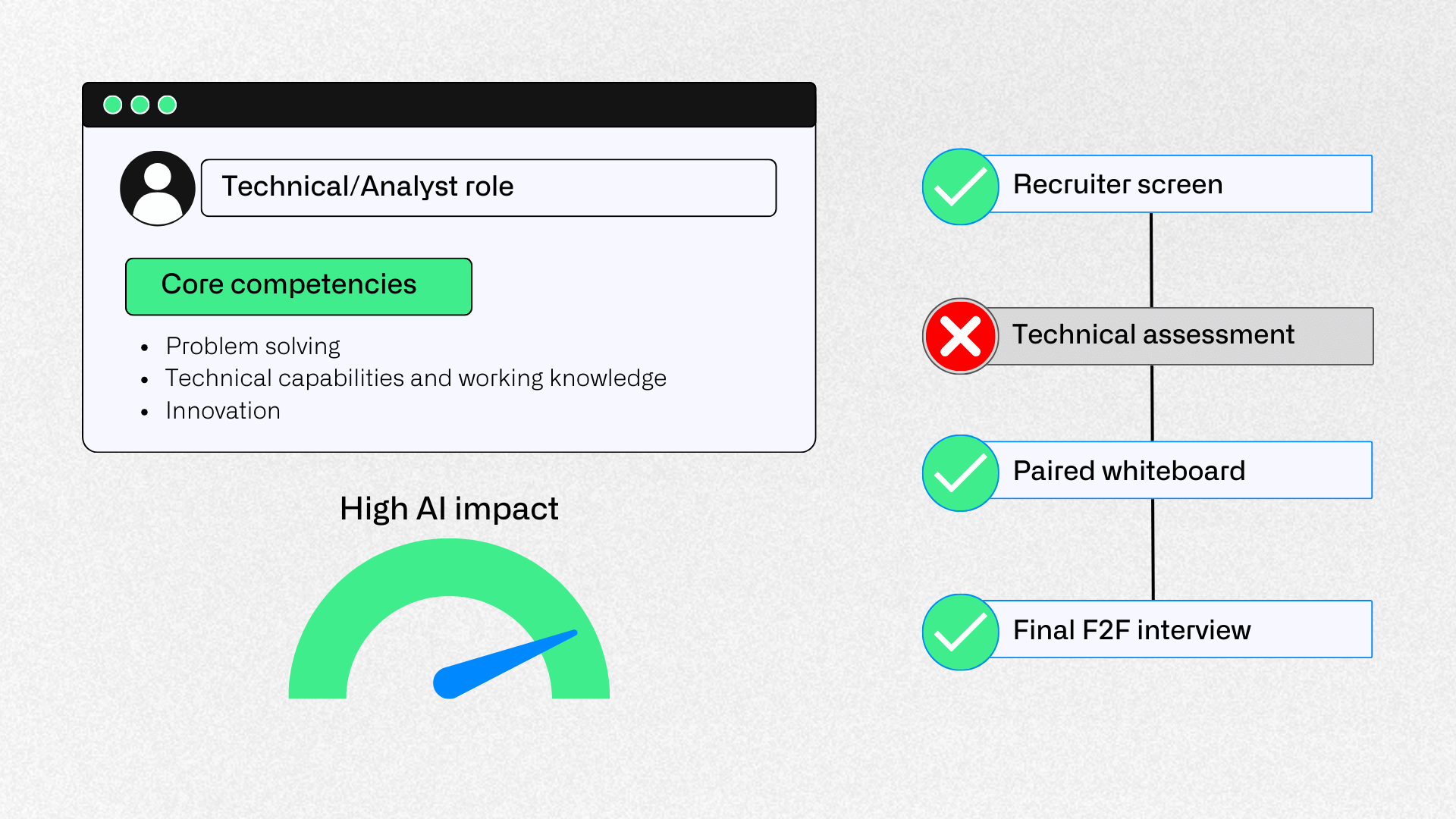
1) Recruiter screen
The recruiter screen would be much more behavioural and cultural fit questioning. With AI writing CVs, increasingly the technical experience bar will rise and some deeper questions here necessary.
2) Technical assessment REMOVE
With an increasing array of tools to cheat the system we think the traditional online and technical question assessment will be redundant for knocking out candidates.
3) Paired whiteboard
Designing a strong technical challenge, which can’t be prepared for, with a suitably skilled interviewer will be key. Stretching the boundaries of the challenge eg what if X? will reveal problem solving capability.
4) Final F2F interview
If practical then an IRL F2F interview conducted, if not a remote video call, cameras on with the final decision maker(s) an essential last step. A strong scorecard will ensure no doubt the best person has been found.
Managerial Roles
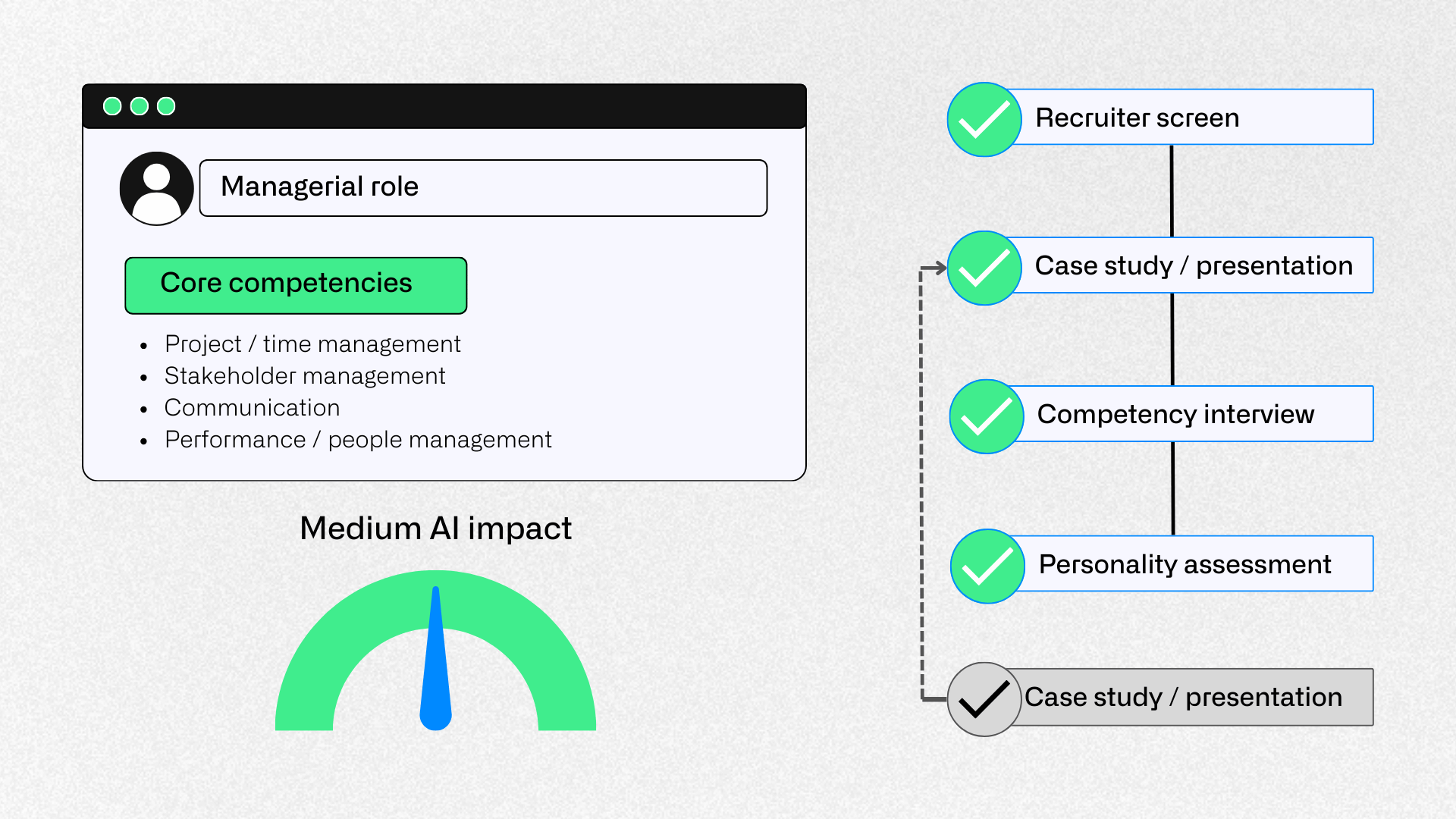
1) Recruiter screen
Question marks as to how effective a recruiter screen is for this role profile. Deep questions around the candidates experience will be necessary to weed out inflated experience.
2) Case study / presentation – DO EARLIER
This stage should be earlier in the process. For such a human role we’ll need to see candidates speak, influence and convince us they have what it takes to drive business forwards.
3) Competency Interview
The questions will need to be more bespoke and have the opportunity to stretch the parameters. Use of AI would be discouraged here but doing so would mitigate use that goes under the radar.
4) Personality Assessment
Although there is limited merit in pretending to be someone your not, we can see system hacking occurring here too. Products like Arctic Shores could become a mainstream solution for TA teams.
Leadership / Exec Roles

1) Headhunting
For the most senior of roles their experience is a matter of public record. We don’t believe AI will play much of a role, but deeper fact checking / reference research will increase in importance.
2) Peer Interviews
Another common step that is designed to understand the rounded knowledge, relationship building and cultural fit of a candidate. Usually F2F and less likely AI will play a role.
3) Case study / presentations
We might see a rise in candidates using AI to support strategy design. Manipulating the parameters of the assignment live will reveal the candidates critical thinking and experience.
4) Psychometric Analysis
A more quantitative understanding of the leader to be coupled with the input of the peer level qualitative input for decision making. Good barometer of self awareness through follow up.
5) Final “CEO” interview
The most senior decision maker, influenced by their senior teams input, will almost certainly have a F2F interview to decide on candidate.
Gain further inspiration
Co-created content from the HOV community.
This free smoke consists of inspiring podcasts, insights and tools to help you level up the game in TA and HR.

